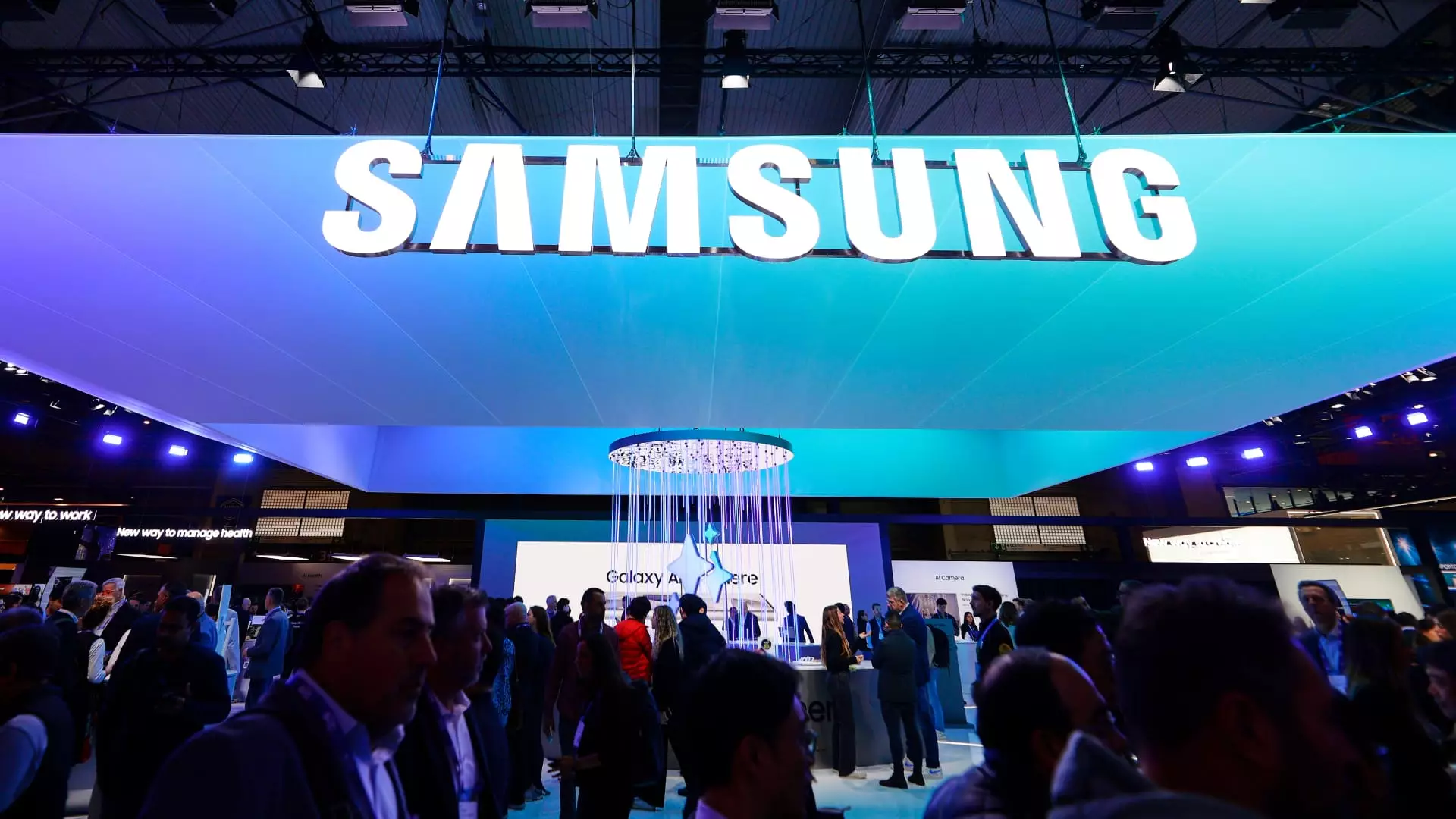Samsung Electronics, one of the leading tech giants in South Korea, recently witnessed a surge in its stock prices, reaching the highest level since January 2021. This remarkable increase was driven by the company’s optimistic profit forecast for the second quarter, primarily fueled by the growing demand for artificial intelligence technologies.
According to the guidance provided by Samsung, the operating profit for the April to June quarter is expected to reach approximately 10.4 trillion won ($7.54 billion). This represents a significant jump of about 1,452% compared to the figures from a year ago. The estimated operating profit surpassed the expectations of analysts, indicating a strong financial performance by the tech giant.
Furthermore, Samsung projects that its revenue for the second quarter will fall within the range of 73 trillion to 75 trillion won, showing a promising growth trajectory compared to the same period last year. The rebound in business for Samsung can be attributed to the recovery of memory chip prices and the surge in demand for artificial intelligence technologies, particularly generative AI.
Samsung has strategically positioned itself in the AI market, with a focus on generative AI technologies that enhance user experiences, such as photo editing features and AI-driven search capabilities. The company’s Galaxy S24 Ultra smartphone exemplifies its commitment to integrating AI capabilities into its products, catering to the growing consumer demand for AI-powered solutions.
Despite the positive outlook for Samsung’s earnings, concerns have been raised regarding the company’s lag in high-bandwidth memory (HBM) production, a key component in AI chipsets. This delay has impacted Samsung’s supply to major players like Nvidia, potentially affecting its market competitiveness in the AI sector.
Looking ahead, Samsung is expected to release detailed second-quarter results later this month, shedding more light on its financial performance and strategic initiatives. The company’s ability to address the challenges in HBM production and capitalize on the AI boom will be crucial in sustaining its growth momentum in the highly competitive tech industry.
While Samsung Electronics has achieved significant success in leveraging AI demand to drive its financial performance, the company must address key challenges in its supply chain to remain at the forefront of technological innovation. By focusing on strengthening its position in the AI market and enhancing its production capabilities, Samsung can continue to thrive in the ever-evolving landscape of technology.


Leave a Reply